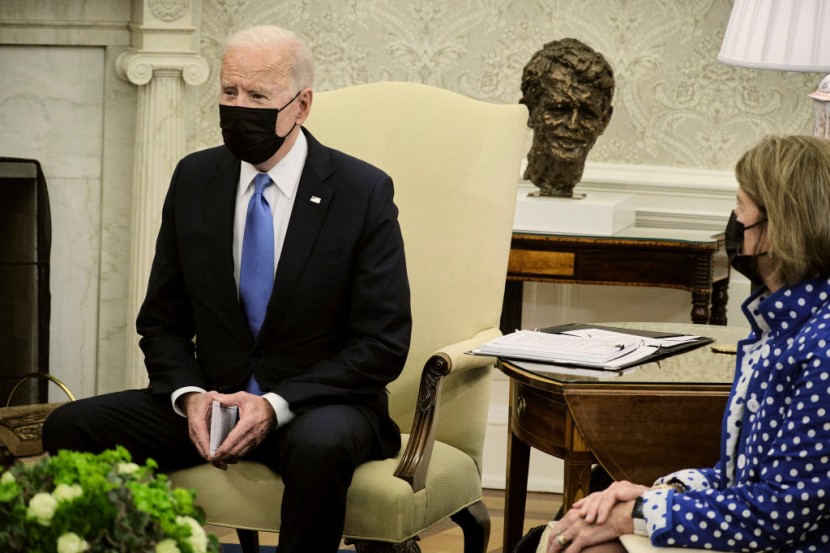
On Tuesday, President Joe Biden ended talks with a group of Republican senators on a major infrastructure package. He began reaching out to senators from both parties to strengthen a bipartisan agreement while laying the groundwork for a possible Democratic-only approach for one of his legislative priorities.
After speaking with main Republican negotiator Sen. Shelley Moore Capito on Tuesday, the president walked away from the negotiations. According to White House press secretary Jen Psaki, Biden expressed thanks to the West Virginia senator for her good faith efforts, but he also voiced dismay with the GOP senators' new offer.
In a statement, Capito expressed her disappointment at Biden's decision to stop the negotiations.
Biden is disappointed with Capito's offer in infrastructure talks
According to US News, Psaki said, "The President is dedicated to passing his economic agenda through Congress this summer, and is seeking many routes to accomplish so."
The impasse arose because the two parties were unable to reach an agreement on the extent of the President's massive infrastructure project and how to pay for it. The Republican senators proposed a $928 billion budget that included about $330 billion in new spending, which is less than Biden's $1.7 trillion investment plan to rebuild the nation's roads, highways, bridges, and other infrastructure, including Veterans Affairs hospitals and care centers.
Biden suggested increasing the corporate tax rate from 21% to 28%, rejecting Republican senators' proposal to use unspent COVID-19 funds to pay new infrastructure expenditures.
As Biden seeks a bipartisan agreement, he has begun approaching additional senators, including Republican Bill Cassidy of Louisiana and two key centrist Democrats, Joe Manchin of West Virginia and Kyrsten Sinema of Arizona, who are now in discussion.
Biden switched his efforts towards negotiations with a bipartisan group of 20 senators after talks with Capito's group fell apart. During Biden's impending trip to Europe, the President and key Cabinet officials will continue discussions with the group on infrastructure. In the following days, the group is expected to present its own plan, as per Fox News.
Infrastructure plan discussions take too long
Per Daily Mail, Senate Majority Leader Chuck Schumer warned earlier in the day that the discussions seemed to be facing a brick block. The leading Senate Democrat resurrected the idea of putting together a bipartisan plan that could be combined with a Democrat-only package to help the administration accomplish more of its $2 trillion investment goals.
According to a White House official, Biden changed his mind after Capito, the leader of a group of six Senate Republicans negotiating the deal, proposed $330 billion in new infrastructure investment, significantly less than Biden's reduced $1.7 trillion offer.
Some liberal members of Biden's party are concerned that the discussions are taking too long and that the country will end up with a lesser package than it needs. They are keenly aware of the possibility of losing their narrow majority in one or both chambers of Congress in next year's midterm elections, making success on Biden's agenda essential right now.
On one of Biden's primary domestic policy priorities, the two parties remain far apart, arguing on how much to spend, how to pay for it, and even what constitutes infrastructure. The White House has proposed to reduce its $1.7 trillion proposal package, which includes climate change, home healthcare, and education projects. Spending on more typical infrastructure projects, such as roads and bridges, is also included.
Related Article: Infrastructure Plan: President Joe Biden Willing To Keep Trump Tax Cuts in Counteroffer; Proposes Minimum Rate of 15%
@YouTube








